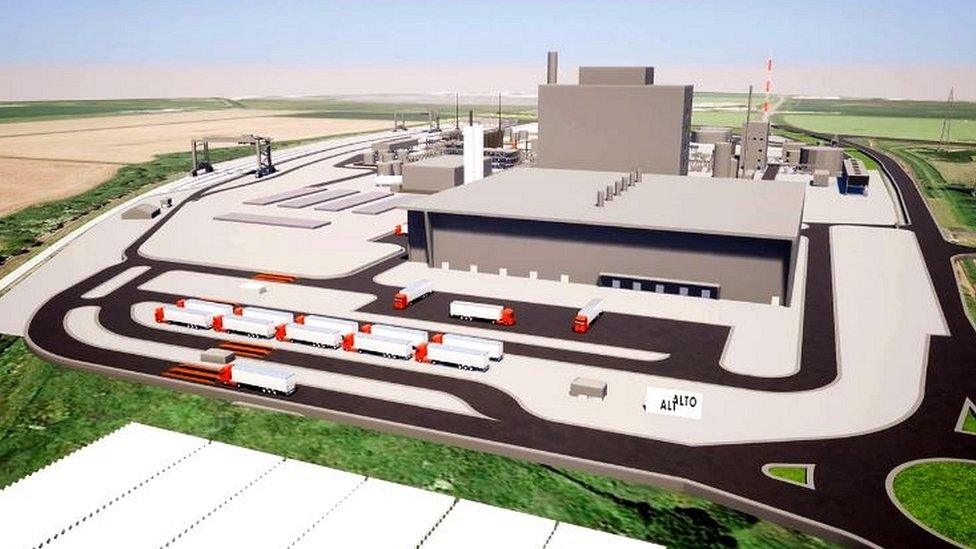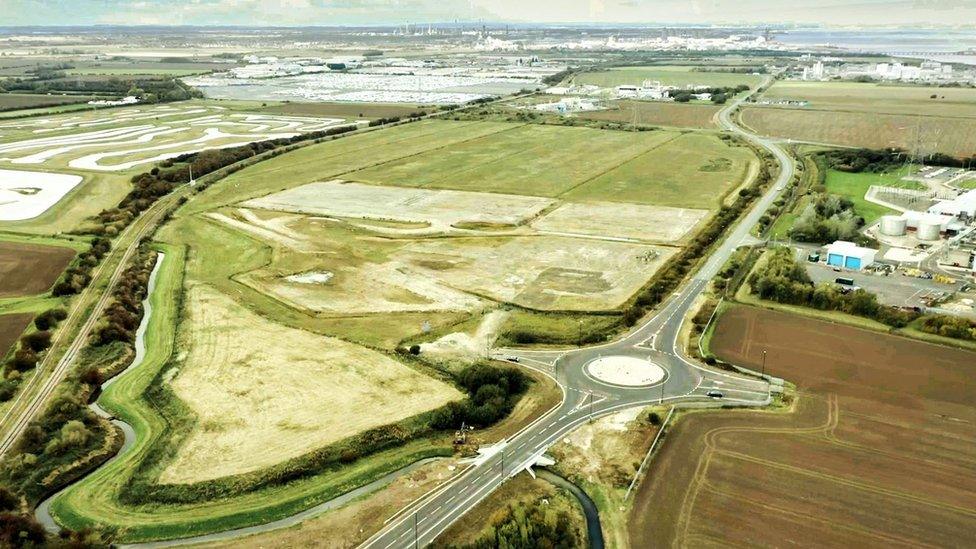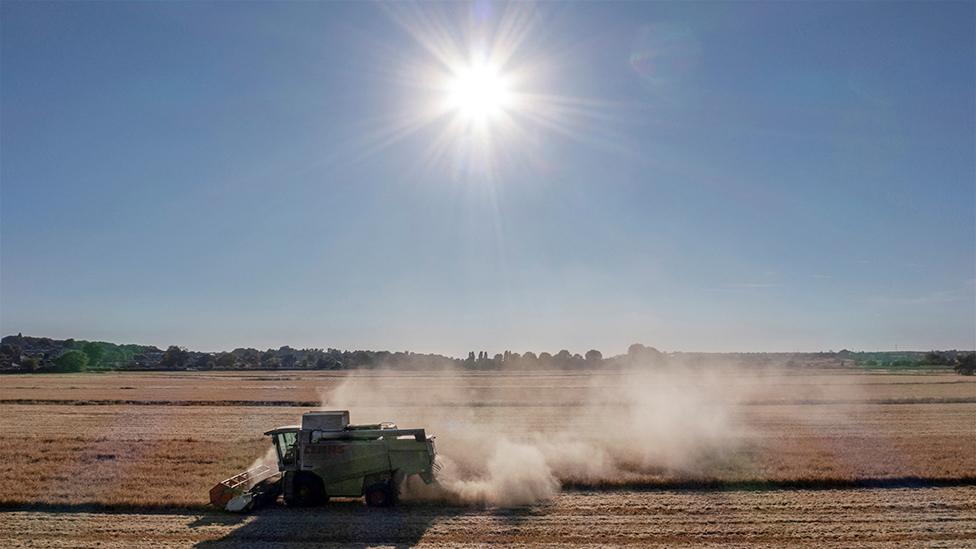Immingham: Company awarded £27m to make jet fuel from rubbish
- Published

Transport Secretary Mark Harper said the scheme would "create thousands of green jobs across the country and slash carbon emissions"
A sustainable fuels technology company has been awarded £27m to turn household rubbish into fuel for aeroplanes.
Velocys PLC is building a plant in Immingham which it is hoped will produce 300,000 tonnes of sustainable aviation fuel (SAF) a year.
Transport Secretary Mark Harper said using waste to fuel airliners sounded like a flight of fancy, but "guilt-free-flying would become a reality".
Operations were expected to begin in 2028, a spokesperson for Velocys said.
They said the project named Altalto was expected to be Europe's first commercial scale waste-to-jet-fuel facility, processing household and commercial waste destined for landfill or incineration.

Velocys in Immingham said its jet fuel facility would process more than 500,000 tonnes of domestic and commercial solid waste a year
Another project, which would see the early development of a SAF plant using carbon capture and hydrogen made from renewable electricity, had received £2.5m from the same tranche of funding, a company statement added.
The company's chief executive, Henrik Wareborn, said he was delighted with the two grants awarded by the Department for Transport's Advanced Fuels Fund, which would "help to accelerate the production of SAF at commercial scale in the UK using our technology".
"The grant will allow us to begin feed for our waste-to-SAF plant in Immingham, which already has planning permission," he added.

The Department for Transport said the Immingham project would see the conversion of black bin bag waste into liquid fuel on a commercial scale, with operations expected to begin in 2028
The Department for Transport said the five projects would produce enough fuel to fly to the moon and back an estimated 60 times.
Once up and running the successful projects would also slash CO2 emissions by an average of 200,000 tonnes each year, it said.
Other projects awarded funding include SAF plants in Teesside, and Ellesmere Port with a scheme in Port Talbot converting steel mill off-gases into fuel.

Follow BBC East Yorkshire and Lincolnshire on Facebook, external, Twitter, external, and Instagram, external. Send your story ideas to yorkslincs.news@bbc.co.uk, external.
- Published15 March 2021

- Published20 December 2022

- Published20 December 2022
